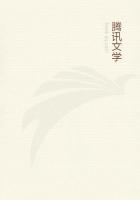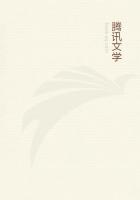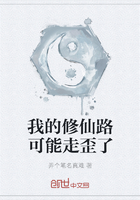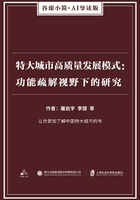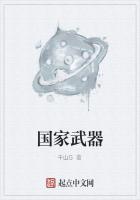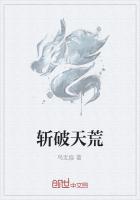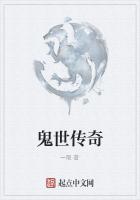The phrases of the street are not only forcible but subtle: for a figure of speech can often get into a crack too small for a definition. Phrases like "put out" or "off colour" might have been coined by Mr. Henry James in an agony of verbal precision.
And there is no more subtle truth than that of the everyday phrase about a man having "his heart in the right place." It involves the idea of normal proportion; not only does a certain function exist, but it is rightly related to other functions. Indeed, the negation of this phrase would describe with peculiar accuracy the somewhat morbid mercy and perverse tenderness of the most representative moderns.
If, for instance, I had to describe with fairness the character of Mr. Bernard Shaw, I could not express myself more exactly than by saying that he has a heroically large and generous heart; but not a heart in the right place. And this is so of the typical society of our time.
The modern world is not evil; in some ways the modern world is far too good. It is full of wild and wasted virtues.
When a religious scheme is shattered (as Christianity was shattered at the Reformation), it is not merely the vices that are let loose.
The vices are, indeed, let loose, and they wander and do damage.
But the virtues are let loose also; and the virtues wander more wildly, and the virtues do more terrible damage. The modern world is full of the old Christian virtues gone mad. The virtues have gone mad because they have been isolated from each other and are wandering alone. Thus some scientists care for truth; and their truth is pitiless. Thus some humanitarians only care for pity; and their pity (I am sorry to say) is often untruthful.
For example, Mr. Blatchford attacks Christianity because he is mad on one Christian virtue: the merely mystical and almost irrational virtue of charity. He has a strange idea that he will make it easier to forgive sins by saying that there are no sins to forgive.
Mr. Blatchford is not only an early Christian, he is the only early Christian who ought really to have been eaten by lions.
For in his case the pagan accusation is really true: his mercy would mean mere anarchy. He really is the enemy of the human race--because he is so human. As the other extreme, we may take the acrid realist, who has deliberately killed in himself all human pleasure in happy tales or in the healing of the heart.
Torquemada tortured people physically for the sake of moral truth.
Zola tortured people morally for the sake of physical truth.
But in Torquemada's time there was at least a system that could to some extent make righteousness and peace kiss each other.
Now they do not even bow. But a much stronger case than these two of truth and pity can be found in the remarkable case of the dislocation of humility.
It is only with one aspect of humility that we are here concerned.
Humility was largely meant as a restraint upon the arrogance and infinity of the appetite of man. He was always outstripping his mercies with his own newly invented needs. His very power of enjoyment destroyed half his joys. By asking for pleasure, he lost the chief pleasure; for the chief pleasure is surprise.
Hence it became evident that if a man would make his world large, he must be always ****** himself small. Even the haughty visions, the tall cities, and the toppling pinnacles are the creations of humility. Giants that tread down forests like grass are the creations of humility. Towers that vanish upwards above the loneliest star are the creations of humility. For towers are not tall unless we look up at them; and giants are not giants unless they are larger than we. All this gigantesque imagination, which is, perhaps, the mightiest of the pleasures of man, is at bottom entirely humble. It is impossible without humility to enjoy anything--even pride.
But what we suffer from to-day is humility in the wrong place.
Modesty has moved from the organ of ambition. Modesty has settled upon the organ of conviction; where it was never meant to be.
A man was meant to be doubtful about himself, but undoubting about the truth; this has been exactly reversed. Nowadays the part of a man that a man does assert is exactly the part he ought not to assert--himself. The part he doubts is exactly the part he ought not to doubt--the Divine Reason. Huxley preached a humility content to learn from Nature. But the new sceptic is so humble that he doubts if he can even learn. Thus we should be wrong if we had said hastily that there is no humility typical of our time.
The truth is that there is a real humility typical of our time; but it so happens that it is practically a more poisonous humility than the wildest prostrations of the ascetic. The old humility was a spur that prevented a man from stopping; not a nail in his boot that prevented him from going on. For the old humility made a man doubtful about his efforts, which might make him work harder.
But the new humility makes a man doubtful about his aims, which will make him stop working altogether.
At any street corner we may meet a man who utters the frantic and blasphemous statement that he may be wrong. Every day one comes across somebody who says that of course his view may not be the right one. Of course his view must be the right one, or it is not his view. We are on the road to producing a race of men too mentally modest to believe in the multiplication table.
We are in danger of seeing philosophers who doubt the law of gravity as being a mere fancy of their own. Scoffers of old time were too proud to be convinced; but these are too humble to be convinced.
The meek do inherit the earth; but the modern sceptics are too meek even to claim their inheritance. It is exactly this intellectual helplessness which is our second problem.
The last chapter has been concerned only with a fact of observation: that what peril of morbidity there is for man comes rather from his reason than his imagination. It was not meant to attack the authority of reason; rather it is the ultimate purpose to defend it.

